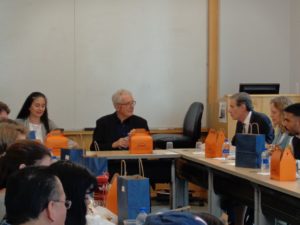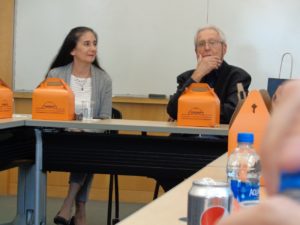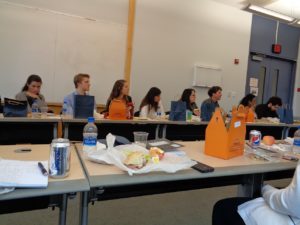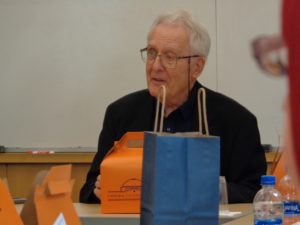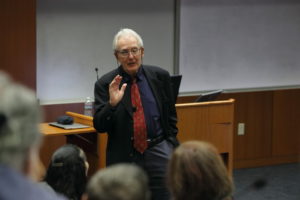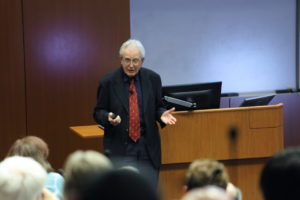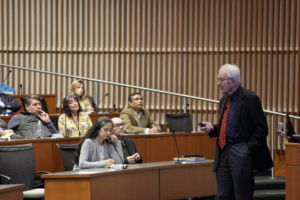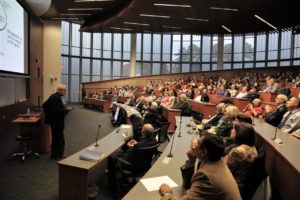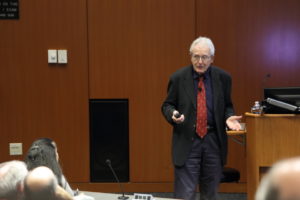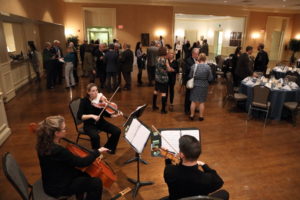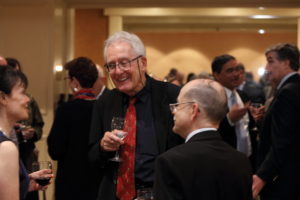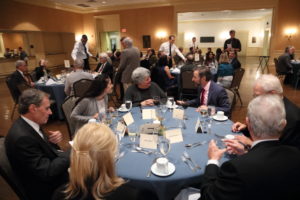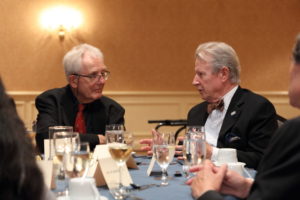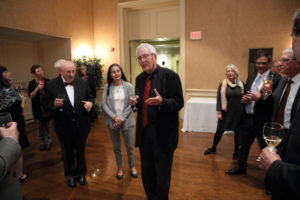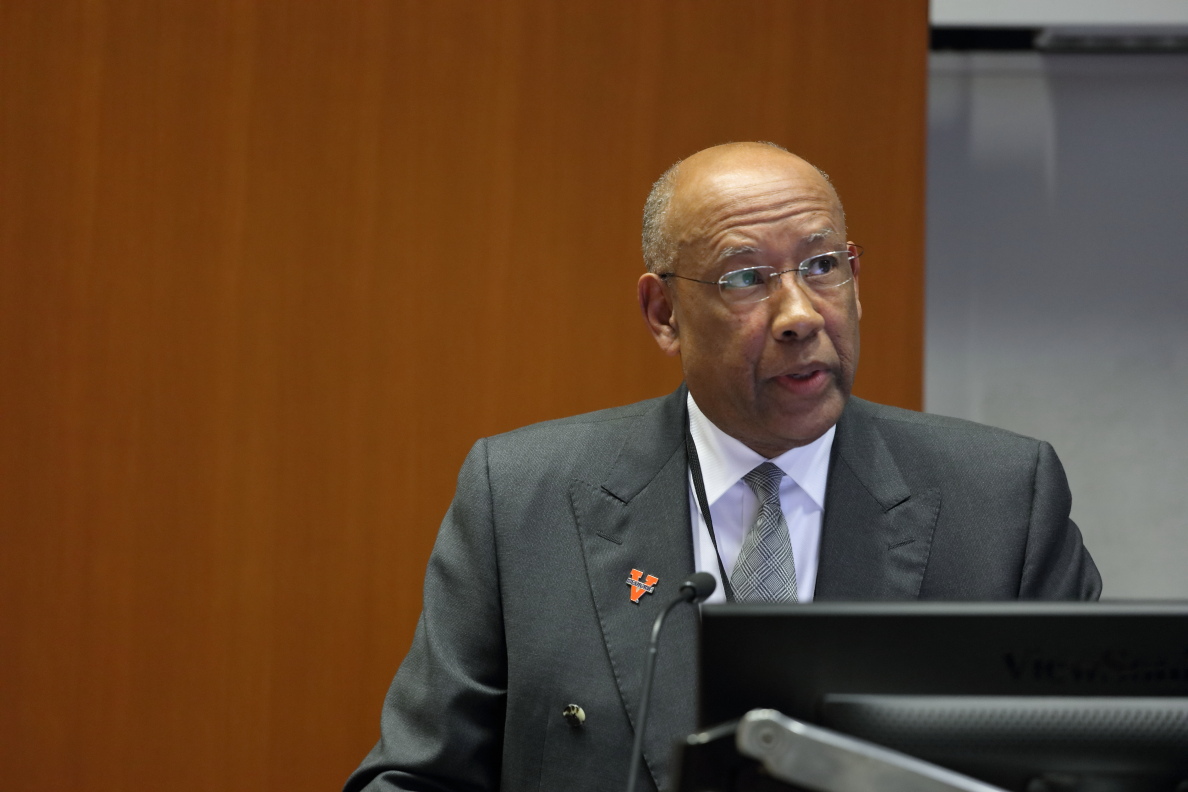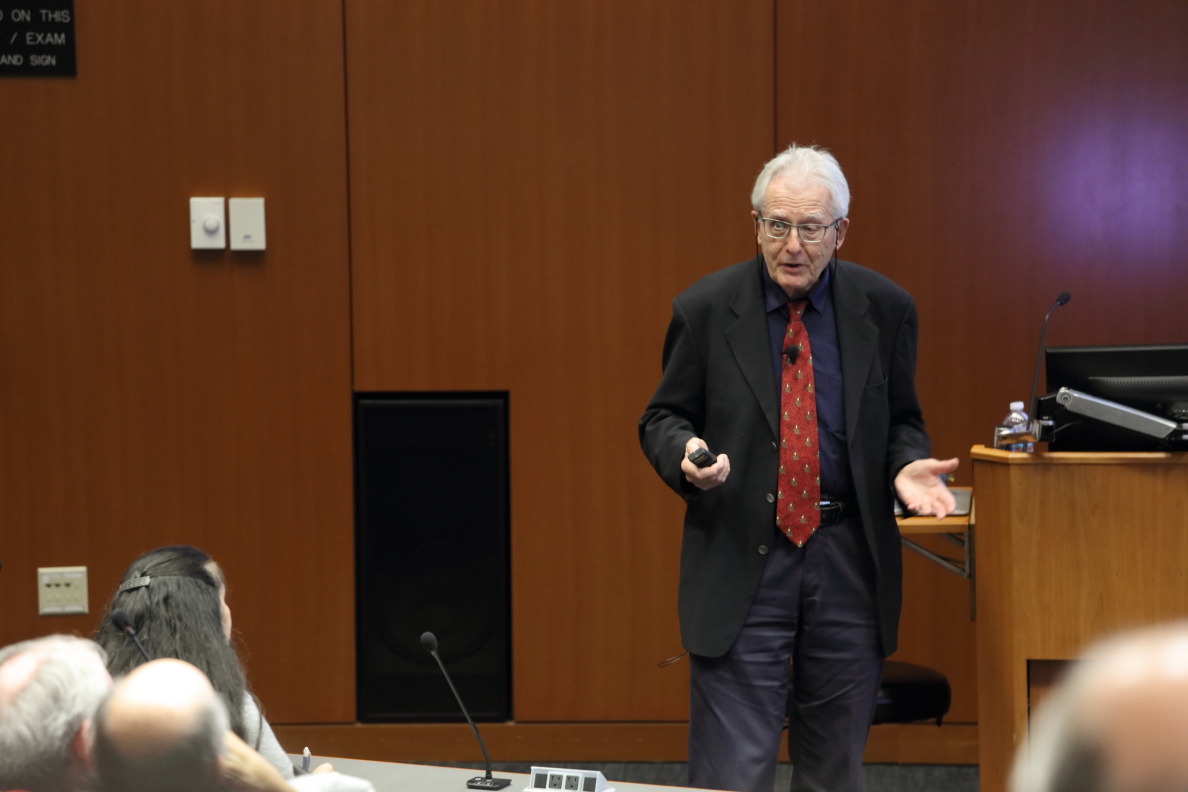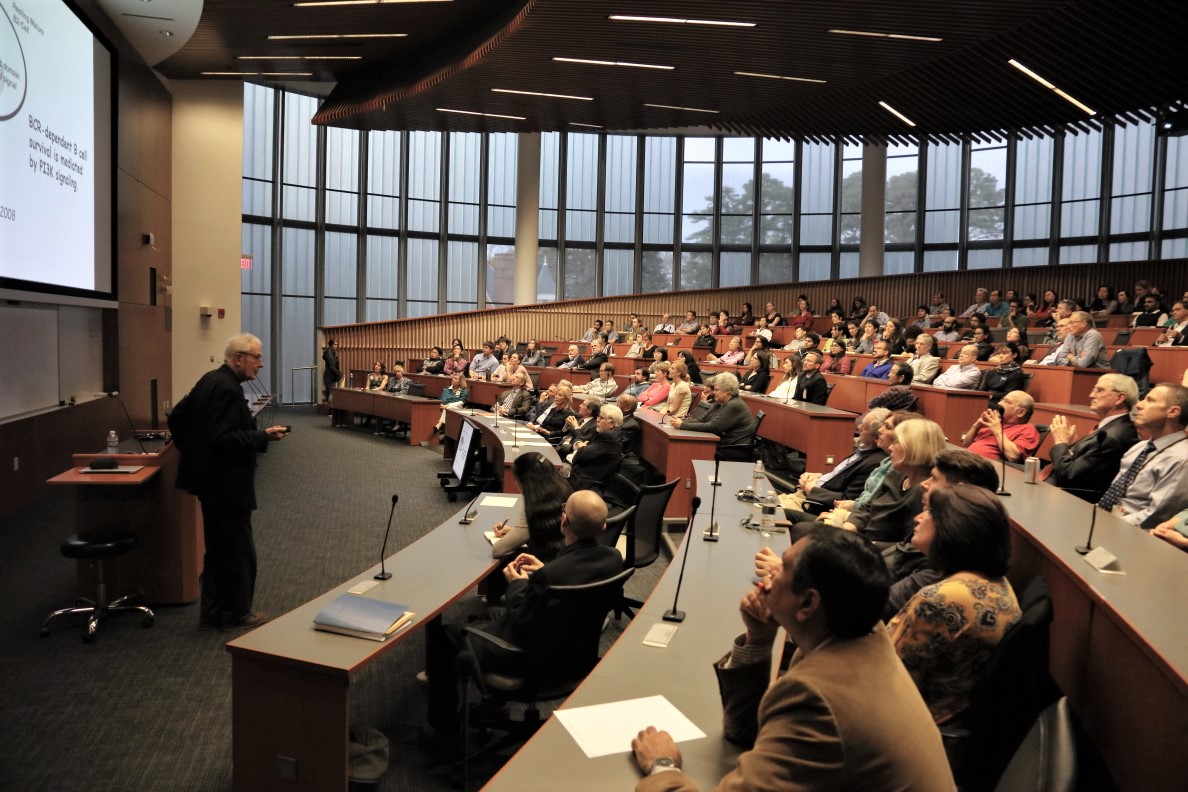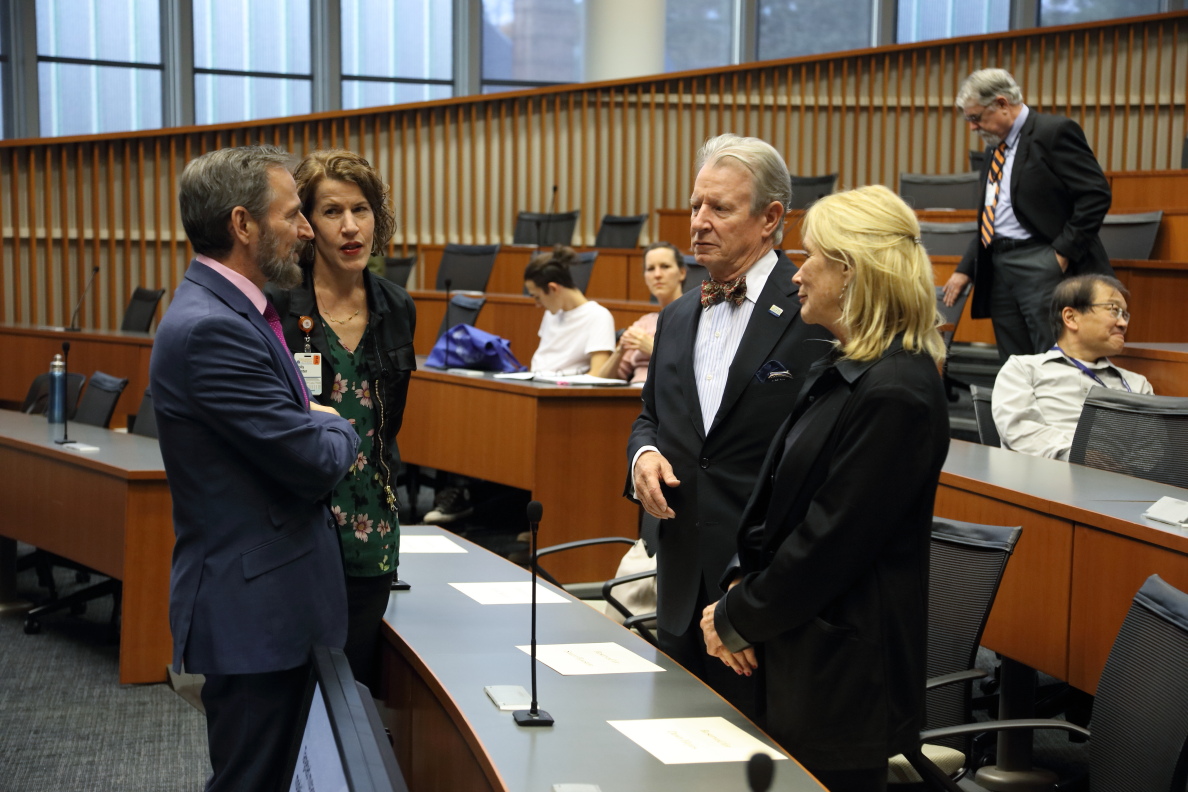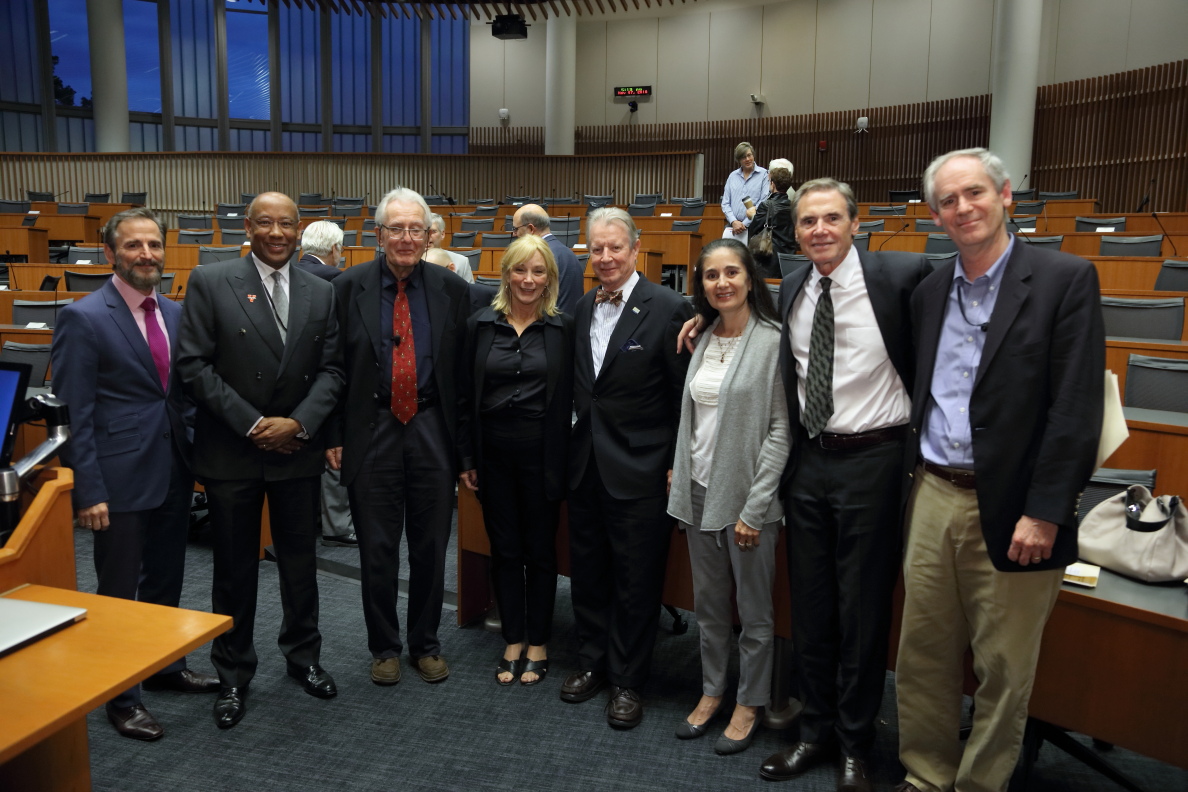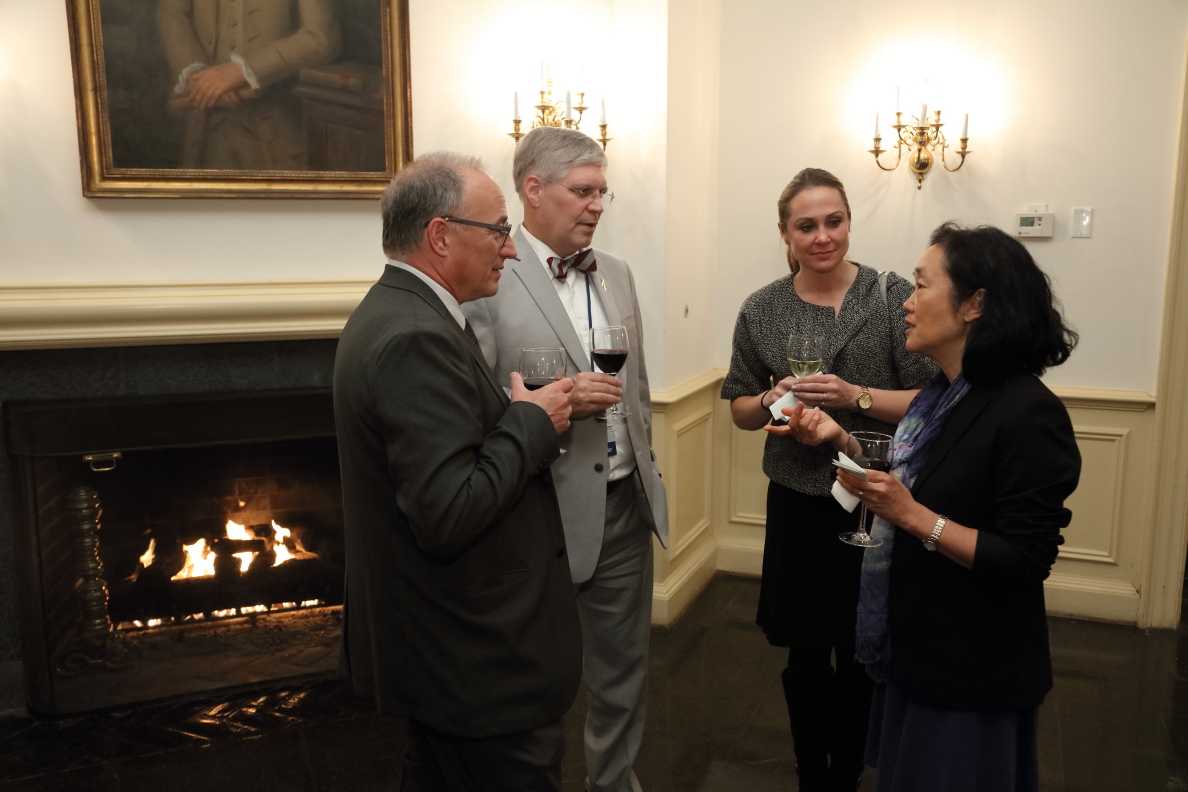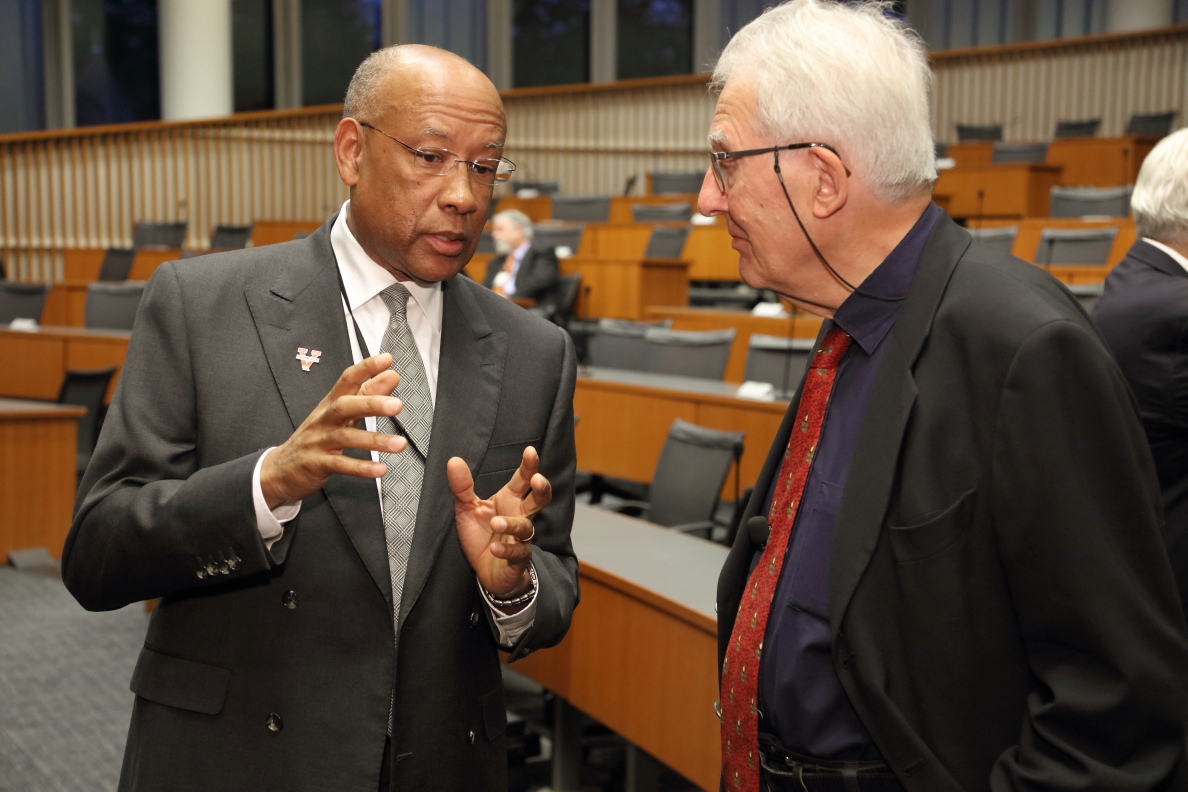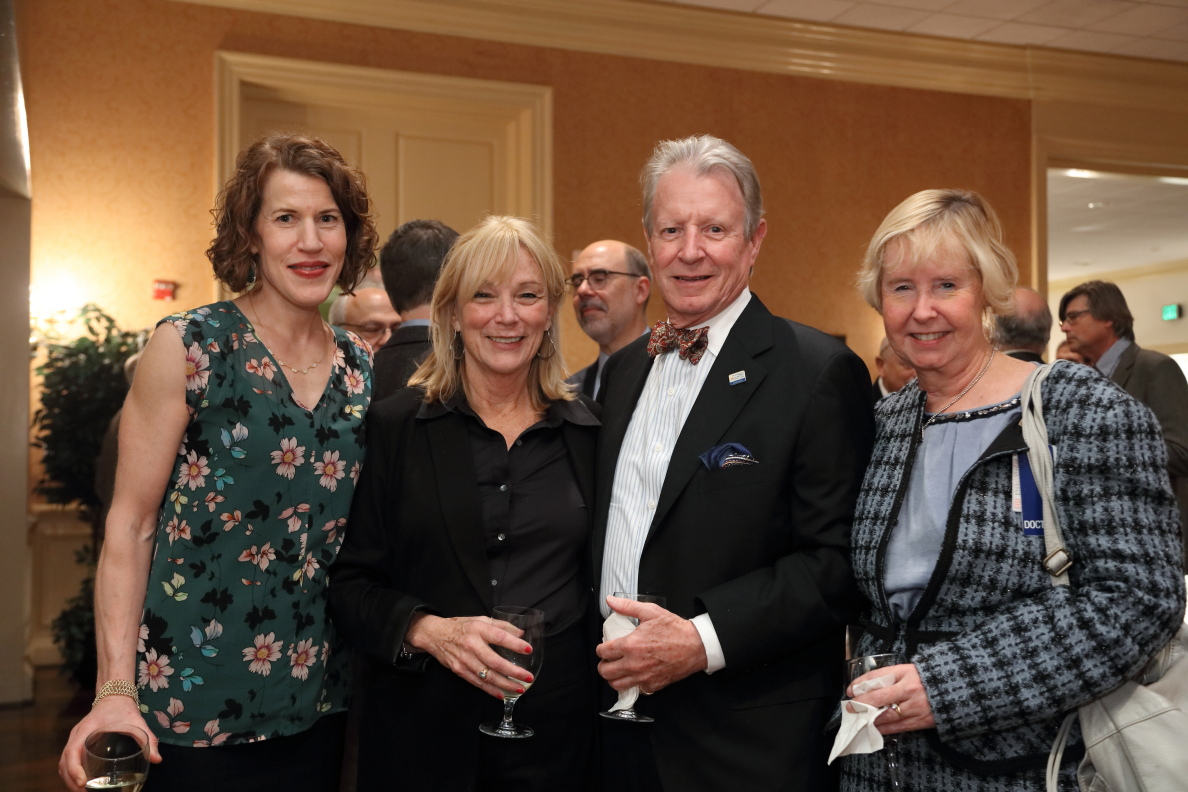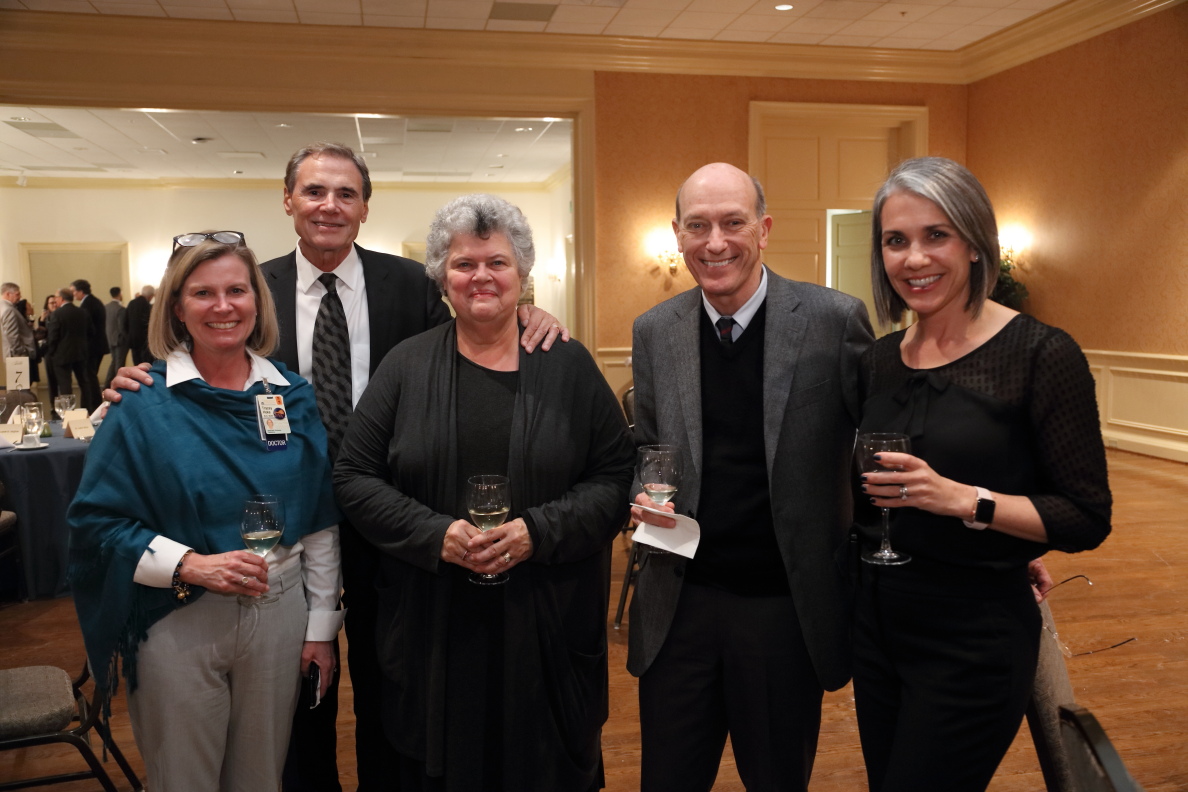Klaus Rajewsky, MD
2018 Betsy and Stuart Houston Lecture
“Targeted mutagenesis and gene repair in modeling and controlling human lymphoid disorders.”
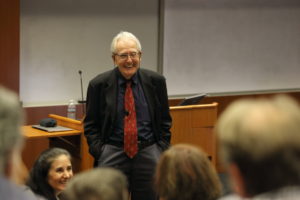
On November 7, 2018, it was an honor to host Klaus Rajewsky, MD at UVA for the 3rd annual Betsy and Stuart Houston Lecture. Dr. Rajewsky, head of the Immune Regulation and Cancer Group at the Max Delbrück Center for Molecular Medicine, participated in a series of meetings and events leading up to his lecture. His lecture was very well attended, as the entire Medical Education Building Auditorium was full. Additionally, a live airing was available to attendees on-screen in a separate location.
During Dr. Rajewsky’s visit, he enjoyed a lunch with the Trainees and Junior Faculty, with the theme of the meeting is: “The Making of a Scientist.” The lunch was an open discussion with Dr. Rajewsky. The Professor displays a passing on for teaching and learning. It is apparent that he loves his job and feeds off of his interactions with other scientists.
As UVA Researchers asked insightful questions, Dr. Rajewsky would respond with a lot of energy. His experiences that he shared remind us all that we are all learning at any stage of our lives. When he was asked about success and how to achieve it, he responded: “…by realizing when something does not work, and to move on to what may work and what does work.”
Sponsored by the Child Health Research Center, the talk was entitled “Targeted mutagenesis and gene repair in modeling and controlling human lymphoid disorders.” Dr. R. Ariel Gomez, Director of the CHRC, was pleased with the attendance and excitement that this event brought.
Betsy and Stuart Houston provided the monetary gift to hold the 3rd annual Houston Lectureship. Although Betsy Houston, a previous patient of the UVA Medical Center, passed away in 2015, she and her husband provided a contribution prior to her death to support various Medical Center programs. The lectureship gives us the opportunity to invite an outstanding scientist to visit the University each year.
We ended the day with a complimentary dinner at the Alumni Hall’s Jefferson Ballroom. The statue of Jefferson in Alumni Hall’s Annex inspired our guest to refer to Jefferson and the rich history that UVA is part of as he delivered his speech. This venue provided the ideal ambiance to pay tribute to Dr. Rajewsky and our generous contributors.
Our speaker, Dr. Klaus Rajewsky, is the head of the Immune Regulation and Cancer Group at the Max Delbrück Center for Molecular Medicine. He has made fundamental contributions to our understanding of B cell development and function, and the mechanisms underlying B cell lymphomas. His current work continues to focus on better understanding B cell cancers and identifying ways to address them. In recognition of his work, he received numerous prestigious awards, including:
1977 Avery-Landsteiner Prize of the German Society for immunology
1994 Behring Kitasato Prize from the Hoechst Japan
1996 Robert Koch Prize, together with Fritz Melchers
1997 Körber Prize for European Science
2001 Deutscher Krebshilfepreis, together with Martin-Leo Hansmann and Ralf Küppers
2004 Honorary degree of the Johann Wolfgang Goethe University of Frankfurt am Main
2005 Charles Rodolphe Brupbacher Prize for Cancer Research, along with Mariano Barbacid
2007 Novartis Prize for Basic Immunology, along with Frederick Alt and Fritz Melchers (de)
2008 Ernst Schering Prize
2009 Max Delbrück Medal
2009 William B. Coley Award for Distinguished Research in Tumor Immunology, together with Frederick Alt
2010 Ernst Jung Gold Medal for Medicine
Klaus Rajewsky and his collaborators developed a general method of targeted mutagenesis in mouse embryonic stem cells by introducing bacteriophage- and yeast-derived recombination systems, which opened the way for conditional gene targeting. Using this and other novel approaches in their immunological work, they developed, together with NA Mitchison and NK Jerne, the antigen-bridge model of T-B cell cooperation, identified the B cell antigen receptor is a survival determinant of B cells, and characterized germinal centers as the sites of antibody somatic hypermutation and memory cell formation as well as the significant source of human B cell lymphomas. The recent work included the identification of Hodgkin lymphoma as a germinal center-derived tumor. Over the last years, the work of his group has focused on mechanisms of microRNA control and the development of mouse models of human B cell lymphomas.
After postdoctoral work at the Institute Pasteur in Paris, Klaus Rajewsky built an immunology department at the Institute for Genetics at the University of Cologne, where he stayed for 38 years, with a part-time appointment as founding Program Coordinator of the EMBL Mouse Biology Program at Monterotondo near Rome in the later years. He then worked for 10 years at Harvard Medical School in Boston, USA, and is now at the Max-Delbrück-Center for Molecular Medicine in Berlin, Germany.
Recent achievements include the identification of antagonizing PI3 Kinase and FOXO1 activities as crucial elements of germinal center B cell differentiation and their cooperativity in B cell lymphomagenesis. Additional new insights related to the mechanism of immune surveillance of Epstein-Barr-Virus (EBV) infected and transformed B cells, as well as various aspects of healthy B cell development, including its control by miRNAs.
Sources:
https://en.wikipedia.org/wiki/Klaus_Rajewsky
https://www.mdc-berlin.de/k-rajewsky
https://www.thevalleefoundation.org/programs/vvp/klaus-rajewsky-md

